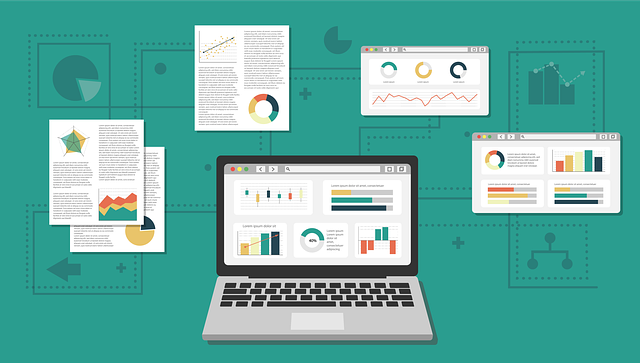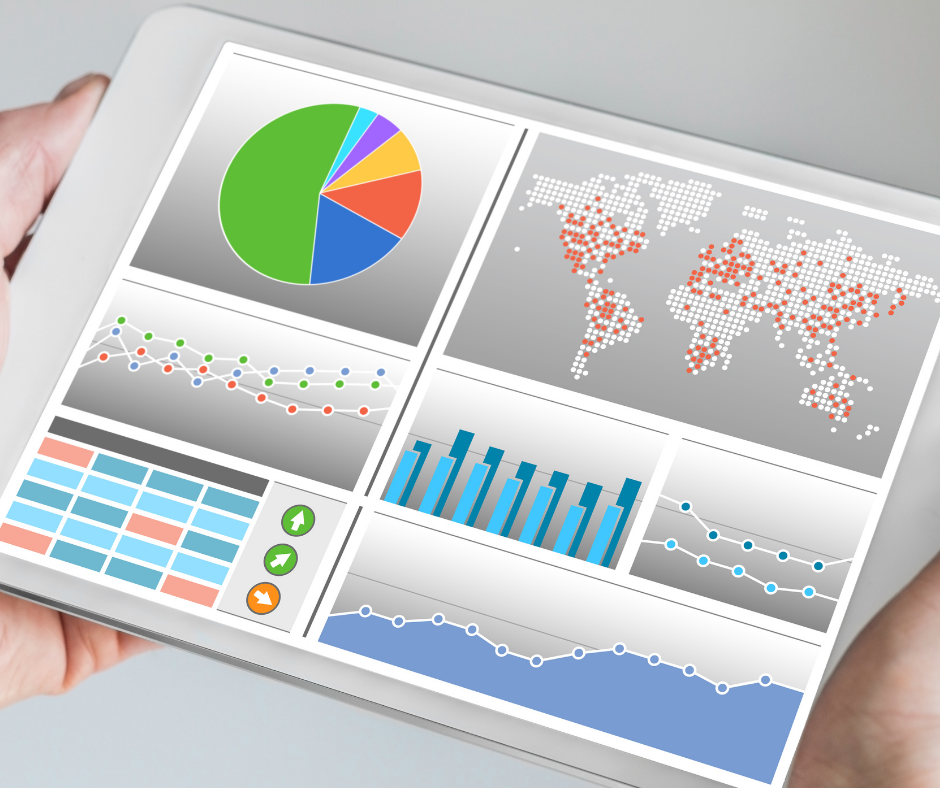What is Business Intelligence (BI)
Business intelligence refers to tools that help businesses and organizations in decision-making by enabling them to access, transform and analyse data. The goal of BI is to provide meaningful business insights, which are then used for strategic decisions. In other words, it helps companies make better-informed business decisions.
“Intelligence” comes from the Latin term Intellego, or “I know.” In short, business intelligence means collecting knowledge about your business through information systems and analysing this information to find answers to critical questions. This analysis can reveal significant trends that would otherwise go unnoticed and could significantly improve the quality of a company’s operations and financial performance and help it meet its objectives. Hence, using BI tools allows you to have all the necessary information at your fingertips to always make the best possible decisions for the company.
Key Features of Business Intelligence
Data Visualization

Using data visualization techniques like bar charts, pie charts, and line graphs, you can present information more effectively and clearly. You can also use these tools to create informative dashboards that allow users to overview business processes in real-time.
Reporting Tools

Depending on organization’s needs, there are different types of reporting tools available online. These range from basic reports to advanced analytics. They can be delivered digitally via web applications or stored in databases for offline viewing.
Dashboarding

Another tool that lets you easily create interactive dashboards is dashboard design software. It gives users the ability to create their own dashboards via a drag & drop interface.
Analytics

Analytics is a critical component of any BI solution. Unlike reporting, where you simply need to take multiple data sources and add up some numbers, you will often require complex analyses that involve combining several related datasets. For example, say you want to see whether sales rose last month, but the number of transactions was lower due to poor weather conditions. Most BI solutions offer various analytical functions to tackle such problems, such as forecasting, correlation, regression, pivot table calculations, etc.
Benefits of Business Intelligence
- Increased Customer Satisfaction

Studies show that when customers receive timely and relevant data about their preferred products/services, they are happier. So, giving your customer a chance to view current market trends and forecasts would provide them with a sense of security, leading them to believe that your brand has been keeping track of their preferences. On top of that, if your business offers a wide variety of products or services, it becomes easy to inform customers of new offerings that may interest them based on their past purchases.
- Less Employee Turnover

Data is the lifeblood of any organization, and it helps keep workers motivated. By showing employees how their actions affect outcomes, they are less likely to become complacent, thus helping to boost productivity. Additionally, having access to detailed statistics, including real-time reports, can give managers insight into which areas need improvement, leading to better employee retention rates.
- More Productive Employees

Businesses that rely heavily on manual record-keeping face significant challenges. Frequently, workers must spend hours entering data into spreadsheets before even thinking about making intelligent strategic decisions. Thankfully, you do not have to worry about tedious paperwork with BI tools because everything required enters itself automatically and efficiently, saving your workforce precious time.
- Improved Financial Performance

A common mistake amongst businesses today is overlooking the importance of optimizing finances. However, given the correct data and insights, companies will be able to save money by taking advantage of optimal ways to run their operations.
A good example would be for an airline company to measure the average weight of its passengers to determine how many seats per plane they need. Or, for an insurance firm, one could use historical data to determine how much money they’ve lost over the years due to faulty policies instead of paying claims.
However, there is a catch here; it is essential to note that accurate data is only half the battle — knowing what to do with the information once you get it is crucial. Take the example above, where the company needs to know how much each passenger weighs before buying tickets. The problem is simple, though; collecting this kind of data from every single person at every moment in time would be impossible. But that does not mean we cannot glean valuable insights from past data. This is where analytics come into play.
Analytics allows you to quickly analyse large amounts of raw data and make sense of the results. If you wonder why so many people opt for online shopping or why some people tend to buy more than others during holidays, you might want to look up specific behavioural patterns using data analysis tools. In other words, just like our airline example above, a business can learn how to optimize spending by analysing the usage patterns of its website.
The Future of Business Intelligence

Business Intelligence (BI) has come a long way since the first data warehouse was created in the 1980s. That’s quite an achievement for anyone following BI’s evolution and progress over the past three decades or so.
However, when I look at some current trends and issues shaping our industry today, it seems to me there is real cause for concern about where we’re headed as a profession. To be clear, this isn’t an attempt to downplay the incredible technological advances made by modern BI platforms; on the contrary, it’s my view that these advancements will continue to transform the landscape while helping us evolve as professionals. Unfortunately, if the pace of change continues unabated and the industry fails to keep up with that pace, then we may well be left behind by those who have already gone beyond BI on their own.

For example, let’s take Amazon Web Services, which offers cloud-based services ranging from infrastructure management and storage to compute resources, application deployment and management, content delivery networks, elasticity and reliability, network connectivity and load balancing, database management and hosting, security and compliance, mobile app development, and artificial intelligence processing.
According to an October 2016 study commissioned by Gartner Inc., cloud computing vendors offer a solution for nearly 20% of global organizations, but Gartner analysts estimate that number could reach 50% within two years. While this sounds impressive, there’s no need to panic yet because Amazon and other providers also have considerable hurdles to overcome. AWS faces competition from Microsoft Azure, Google Cloud Platform, and IBM Soft Layer.
Another recent trend concerns natural language processing (NLP), AI, and machine learning algorithms to extract meaningful information from unstructured data and documents. Companies such as Alchemy API, Nuance Communications, Textio, Witpress, Lexalytics, Genesys Works, and Logical Data Analytics LLC are actively developing products and services around this emerging technology, and they all claim to deliver solutions that can automate the process of extracting information.
Bottom Line: Business intelligence (BI) refers to reporting and analytical capabilities that enable you to gain visibility into your business. It consists of software and hardware components such as databases, servers, client computers, and visual interfaces. These tools provide you with vital information that helps you improve your financial performance, increase security, identify potential risks, resolve customer issues, and prevent operational errors.





